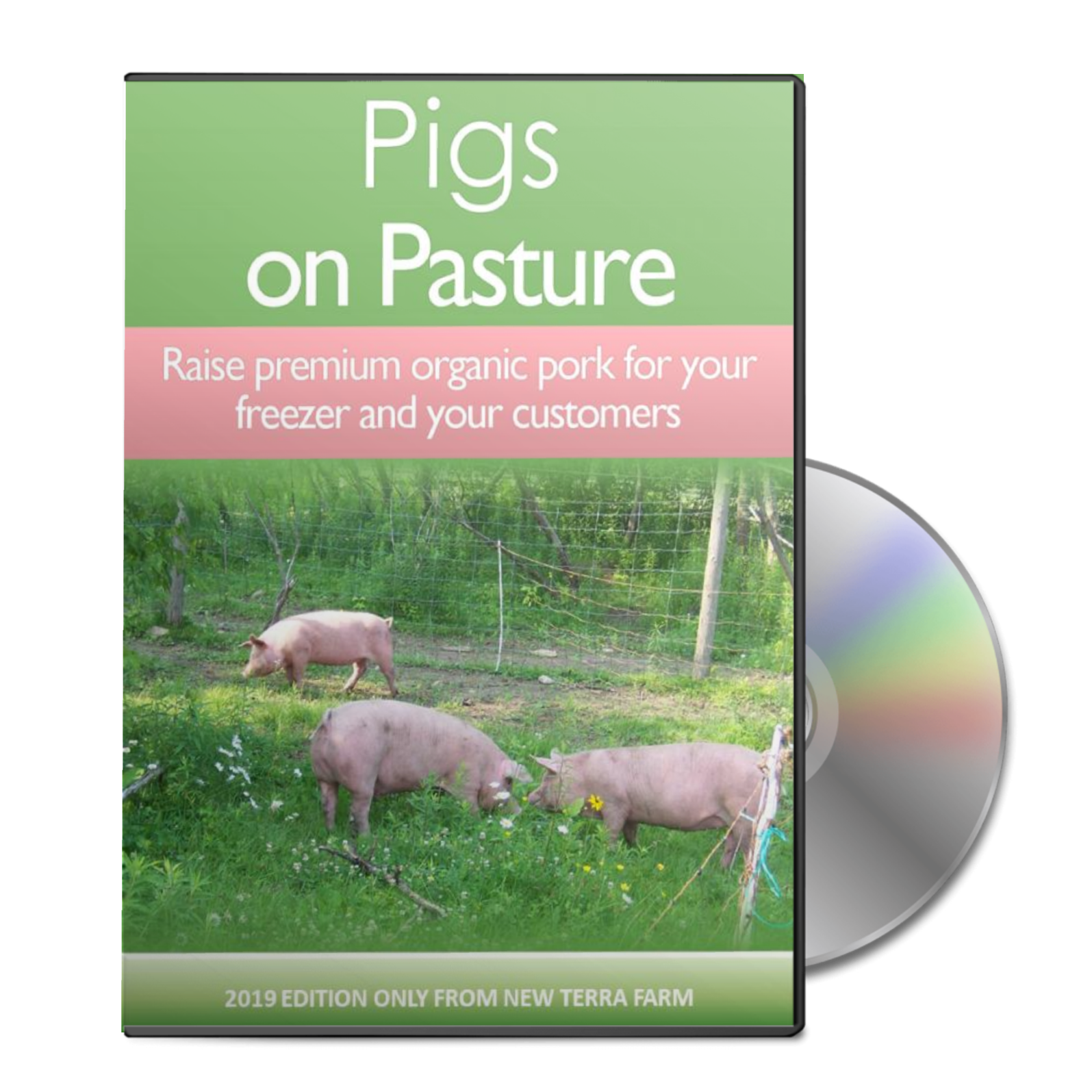Raising Pigs In The Garden
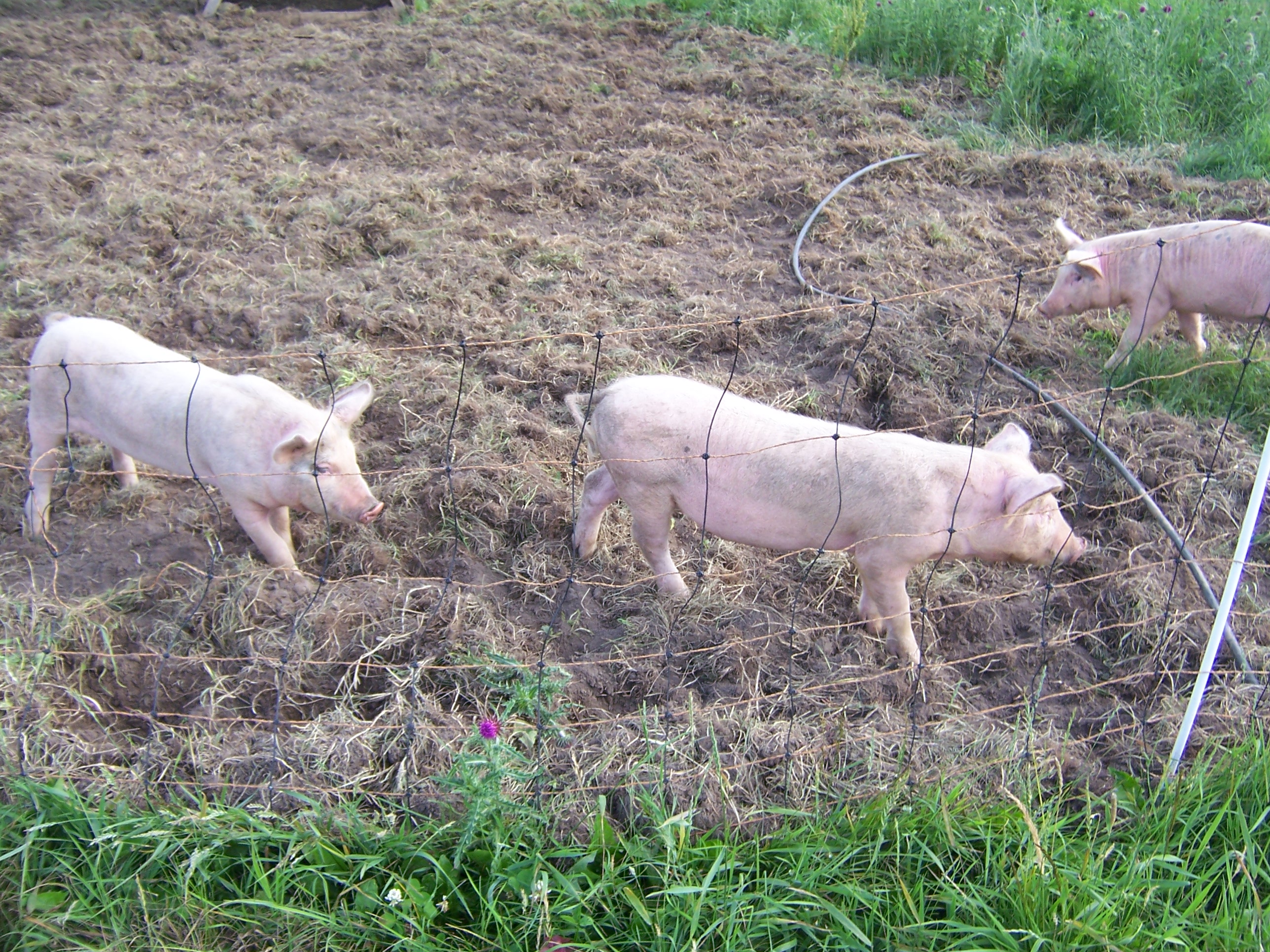 Our piggies hard at work turning up garden soil
Our piggies hard at work turning up garden soilPigs are a great livestock animal for the small operator. And raising pigs in the garden benefits both the animal and the garden crops.
We raise a couple batches of weaner pigs each year and use them to both prepare garden soil before planting and to clean up after the harvest.
Here's why we like pigs, and why pigs in the garden are a match made in small farming heaven.
Pigs use feed efficiently. Pigs convert feed to meat with greater efficiency than either cattle or sheep. A steer uses about nine pounds of feed to produce a pound of beef, a lamb requires about eight pounds, while a hog requires from four to five pounds of feed per pound of live weight.
Pigs give better yields of usable meat. Hogs do much better in yield of usable carcass compared to other animals that produce red meat. Dressing yield is from 65 to 80 percent for hogs, 50 to 60 percent for cattle, and 45 to 55 percent for sheep and lambs.
Organic free-range pork is a premium product. We have customers coming back year after year for the delicious pork produced by our free-range organic piggies. It's tasty and lean, and the smoked bacon, hams, and hocks are superb.
Pigs will 'root up' your garden. In our experience, pigs in the garden will root up soil better than a rototiller. I've observed that when I till a patch of fresh ground, the weeds (especially grass) come back quickly. But when the pigs root up the soil, weeds are much slower to return.
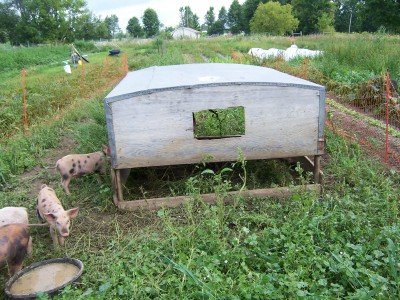 Pigs in the garden BEFORE picture
Pigs in the garden BEFORE pictureAnd they are especially good if you have rocky soil. The pigs will bring the big rocks up to the surface where you can collect them.
One batch of 4-6 pigs, managed the way we do with portable housing and electric fence, can root up about 10,000 square feet (1/4 acre) over a summer.
Pigs will make use of garden scraps. Pigs can convert some garden wastes and by-products into meat. The best way to compost garden waste is to run it through a pig first!
When we are harvesting our market garden on pick and pack days,we have a bucket set aside to collect scraps for the piggies.
They love to see that bucket
coming. And if we're in the garden and run across a insect-damaged or
otherwise unpalatable vegetable, we can just toss it straight over the
electric fence to the happily-awaiting hogs.
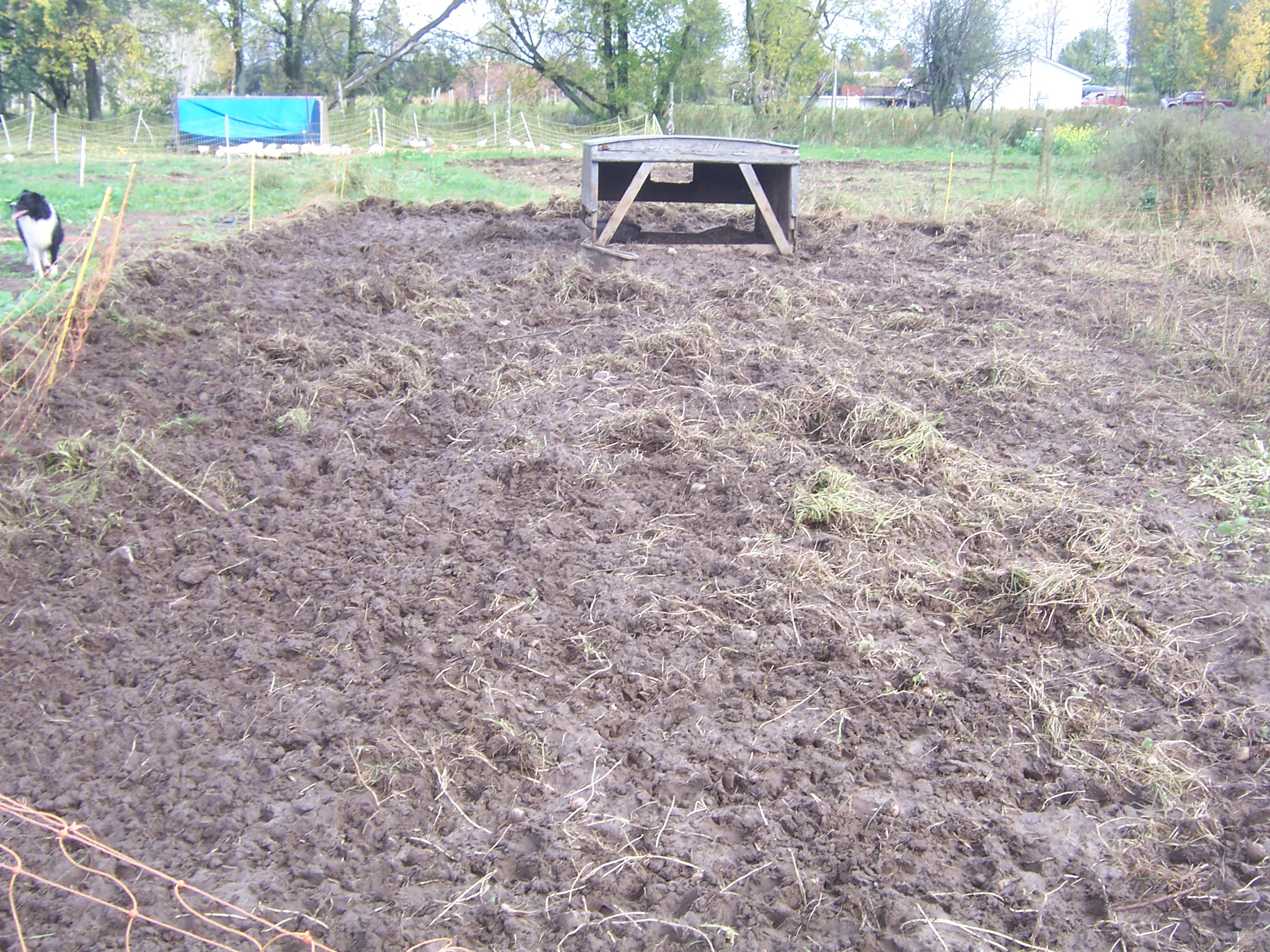 Pigs in the garden AFTER picture
Pigs in the garden AFTER pictureFree One-Acre Farm Plan
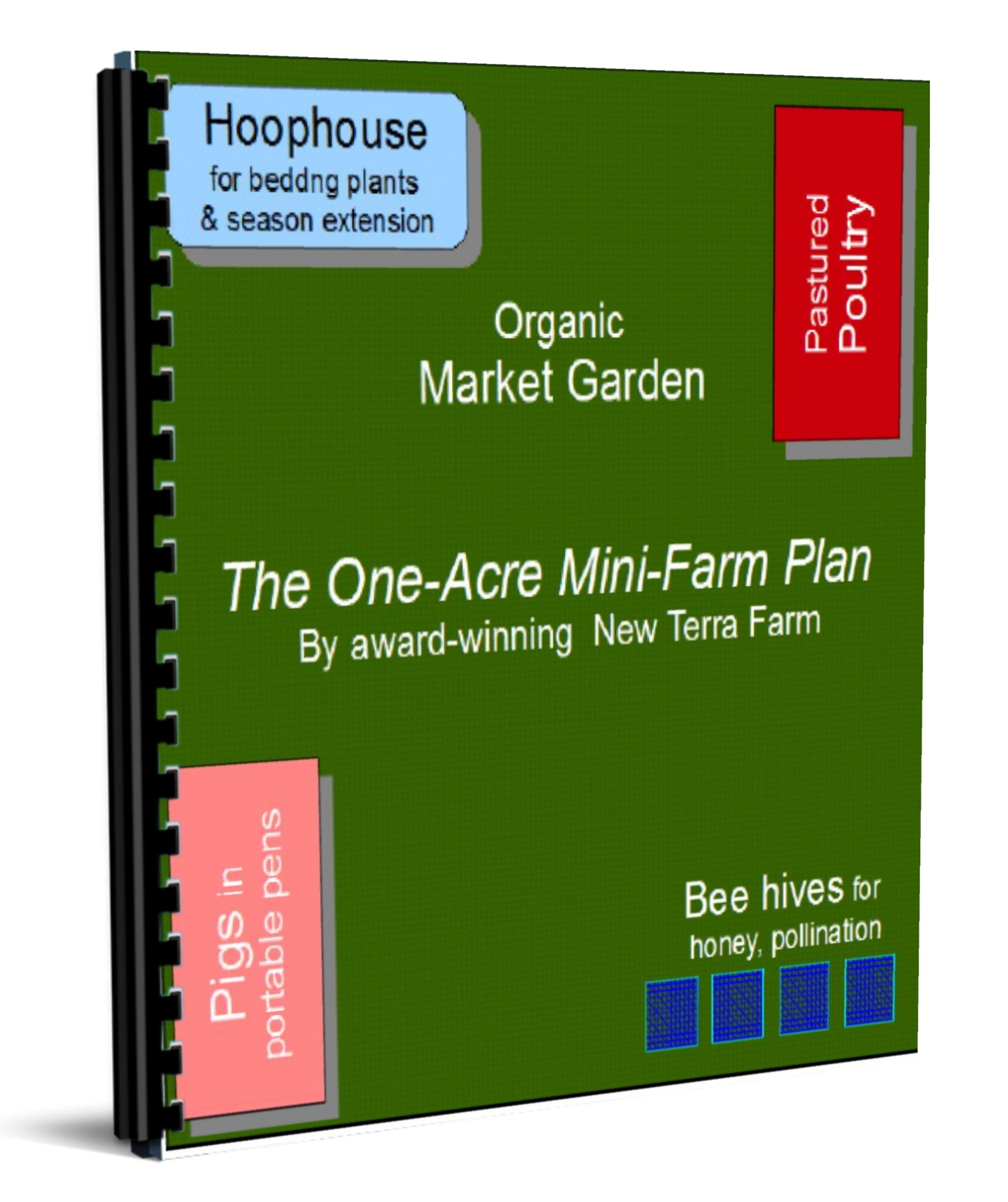
Get my FREE One-Acre Farm Plan and learn how to raise pigs, chickens and more, integrated with an organic market garden, to
make more money from your small property.
Imagine building a profitable and sustainable mini-farm even on a small piece of land.
Enter your email address and a link to the Mini-Farm Plan will be went to you right away
Pigs simplify garden clean-up in the fall As we clear parts of the garden in the fall, we move the piggies in to finish the clean-up for us.
They root up weeds that have grown over the season, chew up
plant stalks, and fertilize as they go. Then in the spring,
'pig-prepared' ground usually requires just one pass with the tiller to
level the soil and produce a seed bed, and we're good to plant.
Pigs with access to fresh soil are healthier. Pigs raised in
'modern' - i.e. cement-floored – barns are susceptible to scours
(severe diarrhea) brought on by iron deficiency.
Pigs on fresh soil get all the iron they need, and other important minerals and micro-nutrients as well, from the soil itself.
And if their natural instinct to root and dig is not frustrated, the result is healthier and happier piggies. In 15 years, we have NEVER had a sick pig raised on pasture.
Common Sense Precautions for Raising Pigs In The Garden
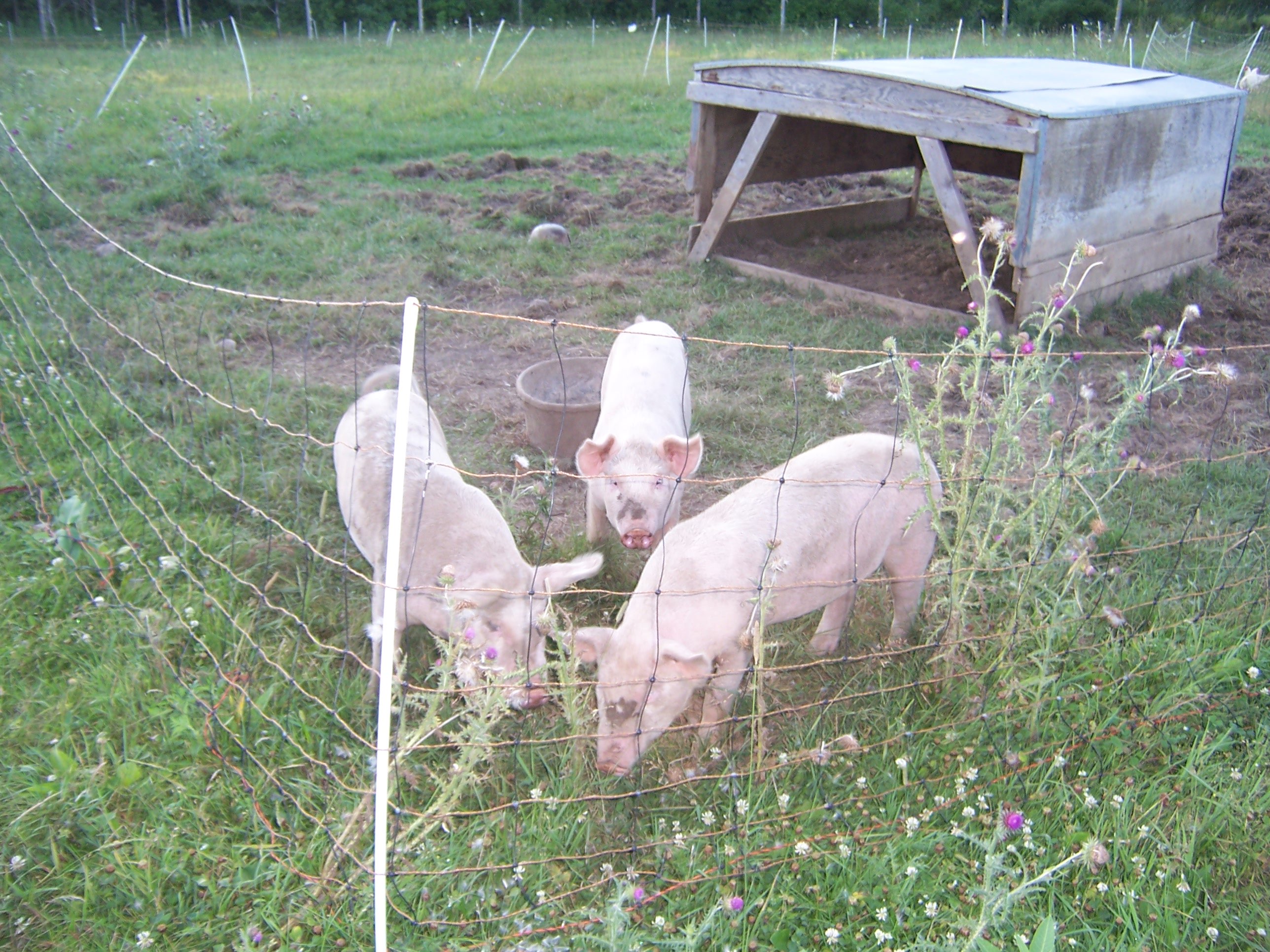 Electric fence keeps the piggies where you want 'em
Electric fence keeps the piggies where you want 'emMake sure the pigs are well confined. You have to make sure pigs in the garden stay where you put them, and more importantly STAY OUT of where you don't want them. Some growers use small, sturdy portable pen that they move daily.
Don't plant into freshly-manured ground. I've read recommendations that say to wait at least 120 days before planting into pig-prepared soil. My preference is to use the ground prepared the previous season; i.e. where my pigs lived last year is where my garden is this year.
If you are going to plant sooner than that, make sure the manure is well-incorporated into the soil for at least 120 days, and don't plant crops where the fruit comes into close contact with the soil. Something like sweet corn would be a good choice.
Don't leave the pigs too long in one spot. Move the pen regularly so there is no great buildup of manure; you want it to be quickly absorbed and worked into the ground, and not create a waste hazard of its own.
Raising pigs in the garden is a great idea for the small farmer or market grower. Grow two valuable crops in the same space, and improve your soil at the same time.
Bootstrap Bacon! Raising pigs is a great complement to your market garden. Piggies will root up the soil and clean up garden waste, turning old veggies into delicious organic PREMIUM PORK.
My latest edition also includes my fabulous Porkulator spreadsheet. I couldn't find a tool to help me calculate costs and profits for my pastured piggies, so I had to create one.
Put some pastured pork in your freezer,and some folding money in your wallet.
Click on 'Add to Cart' to get started.
Other Links of Interest
Here's a great resource for to find the ABSOLUTE BOTTOM LINE for the cheapest food supply. Efficiency is Everything
You might also want to up your self-sufficiency game with my Homestead Book Bundle
And, because there is more to survival than just food, here's a resource with literally HUNDREDS of great tips and low-cost projects for your homestead. The Self Sufficient Backyard. Highly recommended.
- Home Page ›
- Raising Pigs ›
- Pigs in the Garden
See Something You Like? Share!
Got questions to ask, stories to tell?
Share your organic market gardening question, or comment, or story.
